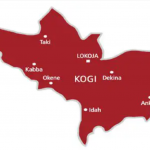Google has made a major move to secure clean energy for its data centres by purchasing a fleet of small modular reactors from California-based Kairos Power.
These mini-nuclear reactors, capable of generating 500 megawatts of low-carbon electricity each, will provide Google with reliable, round-the-clock energy to meet the increasing power demands of its data centres.
Kairos Power announced that its first commercial reactor will be ready by 2030, with more reactors coming online by 2035. Google’s decision to invest in nuclear energy is part of its plan to handle the rising energy needs of its artificial intelligence operations, which require massive amounts of power.
Michael Terrell, Google’s senior director for energy and climate, said, “The grid needs new electricity sources to support AI technologies that are powering major scientific advances, improving services for businesses and customers, and driving national competitiveness and economic growth. This agreement helps accelerate a new technology to meet energy needs cleanly and reliably, and unlock the full potential of AI for everyone.”
Terrell emphasized the importance of nuclear power in addressing Google’s energy needs, saying, “Nuclear solutions offer a clean, round-the-clock power source that can help us reliably meet electricity demands with carbon-free energy every hour of every day.”
Google’s move comes as other tech giants also seek nuclear power solutions. Last month, Microsoft struck a deal to buy energy from the Three Mile Island nuclear plant in Pennsylvania, which is set to reopen in 2028.
Earlier this year, Amazon purchased a 960MW nuclear-powered data centre from Talen Energy for $650 million.
SMRs are seen as a key solution for reducing carbon emissions while providing a steady power supply for industries.
These reactors are built in factories and assembled on-site, making them more efficient and easier to deploy.
In the UK, Rolls-Royce is also working on developing SMRs for global use, though its mini-nuclear reactor business recently posted a loss as it awaits a UK government decision on a new tender competition.











